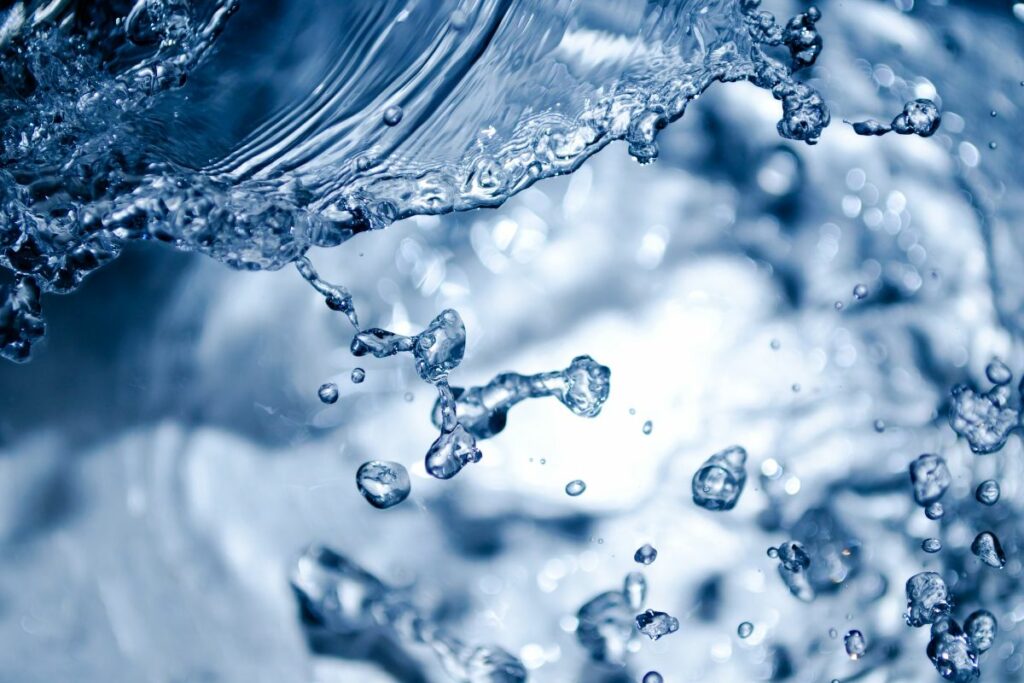*This post may contain affiliate links. As an Amazon Associate we earn from qualifying purchases.
Air compressors are essential for a variety of tasks, ranging from powering certain tools to inflating tires. As such, it’s important that the air compressor you purchase is able to withstand various environmental conditions, including water and moisture.
In this article I will do my best to clearly answer the question: Are air compressors waterproof?
I will explore the different types of air compressors, their components and design features, and the ways in which you can protect them from water damage. Finally, we’ll provide some tips for properly operating and storing an air compressor when it is exposed to water.

What Does “Waterproof” Mean? (Is Fully Submersible Waterproof?)
Before I can answer whether air compressors are waterproof or not, I want to first discuss what I mean in regards to them being “waterproof”.
Generally speaking, an object is considered waterproof when it has been designed and constructed in such a way that it cannot be damaged by water or moisture, even when submerged for extended periods of time. It should also be noted that some objects may be considered “water resistant” meaning they can resist small amounts of water but will eventually succumb to damage if exposed to prolonged periods of water or moisture.
In regards to this article when I am talking about being waterproof in regards to an air compressor I don’t mean that it can be fully submerged in water (as you hopefully won’t be trying to do that with your compressor). I will just be talking about being able to withstand moisture or rain during normal use.
Are All Air Compressors Waterproof?
When buying and using an air compressor it is important to know whether it is waterproof or even water-resistant. The last thing that you want to do is damage your new expensive tool by leaving it out in the rain during use or by leaving it in a leaky garage or shed.
So are air compressors generally waterproof?
Unfortunately, no – not all air compressors are waterproof. In fact, many standard models are only designed to withstand light splashes of water and not outright submersion or long-term exposure to moisture and humidity.
It is not designed to be submerged under water as it wouldn’t have a way to pull the air in (that it is then going to compress. Air compressors shouldn’t be kept outside either as that water can go in the air intake and even damage the air filter or other parts of the air system.
The issue with air compressors is that they bring in outside air through the air intake and then the air goes through the air filter to remove debris. If you are using your air compressor kit in water or moisture that will cause the air filter and air intake to condensate and will shorter their lifespan dramatically.
Another issue with water and air pumps is that it can cause damage to any accessories that you might have for them. These items can range from air tools (there are many custom air tools) to air hoses and most of the time the material these items are made from shouldn’t be exposed to water.
Now an air hose part of the system can handle water without causing too many issues (since they are normally made with rubber or PVC) however other types of equipment in the system can get easily damaged by water or the rust that comes with it.
So ideally you should keep all of your air equipment and all of the accessories that are connected to all air systems as dry as possible.
If you plan on using your air compressor outdoors in wet weather or near bodies of water, then it would be wise to invest in a heavy-duty model that is specifically designed for such environments (i.e., one with a sealed electric motor or oil-lubricated pump).
Although most normal air compressors can handle getting a bit of water on them (such as a drip from a leaky roof or getting slightly wet while going from one place to another in a storm) they should not be left anywhere where they will get any rain, snow, ice, etc. on or in them.
If you just have an air tank that you carry around for quick inflation of tires or to use with a cleaner then that should be able to handle moisture and water just fine. But any normal automotive air compressor (or standard one) that has a motor should not be used in water.
By keeping your air compressor water free you will avoid years of trouble that might be caused by rust and will give your compressor an extra long life. So if you want a trouble-free life for your air compressor don’t use it in wet conditions.
Do Air Compressors Need to Be Waterproof?
So these systems are generally not waterproof but does that matter? Does your air compressor need to be waterproof or will you be fine with a standard air compressor that isn’t waterproof?
Whether you need a waterproof air compressor depends on where and how you intend to use it. If you plan on using your air compressor indoors where it will be free from any potential exposure to water or moisture, then there isn’t really any need for it to be waterproof.
If you only intend on using it for automotive applications such as for air tools, as an inflation kit for your tires, or with similar accessories. then you won’t need to purchase systems that are waterproof.
However, if you plan on using your air compressor outdoors or in other areas where there may be exposure to rain or water splashes, then having a waterproof air compressor would certainly provide added peace of mind as well as protection against potential damage.
If you do construction work and use an air compressor for framing, roofing, etc. then investing in a waterproof air compressor is certainly worthwhile as you might have to work in wet or cold conditions that won’t be ideal. However, for most people who just use them for general projects around the house and garage, you don’t need to spend the extra money to get a waterproof compressor.
Types of Waterproof Air Compressor Kit
If you do decide that a waterproof air compressor is necessary for your application, there are several types available on the market today.
The most common types of waterproof air compressors include those with sealed electric motors and those with sealed oil-lubricated pumps. Sealed electric motor models feature non-conductive plastic housing which prevents shorts due to immersion in water while sealed oil-lubricated pumps have oil-sealed systems that prevent water from entering the pump itself and causing damage.
Both of these waterproof-style air compressors will have quality components and will be designed to protect any electronics or other sensitive parts from moisture. They will also be an excellent choice for cold weather and will be dust resistant as well.
Benefits Of An Air Compressor With A Sealed Electric Motor
An air compressor with a sealed electric motor offers many benefits.
- First and foremost, the sealed electric motor provides superior performance compared to other air compressors. The sealed design prevents dust, dirt, and moisture from entering the motor, making it more reliable and efficient.
- This helps to reduce maintenance costs and extend the life of the motor. Additionally, the enclosed electric motor allows for quiet operation, especially when compared to traditional open-frame motors. It also produces less heat, resulting in improved safety for operators who work around it.
- The sealed motor is also designed to be energy efficient, helping to save money on energy costs over time.
- Finally, an air compressor with a sealed electric motor is designed to last longer than traditional compressors since it will not be susceptible to wear from dust or other contaminants.
Benefits Of An Air Compressor With A Sealed Oil-Lubricated Pump
An air compressor with a sealed oil-lubricated pump offers numerous benefits.
- For one it is extremely efficient and economical to run. Because the oil is continuously lubricating the internal components and gaskets of the pump, there is no need for manual lubrication, meaning upkeep and maintenance costs are vastly reduced.
- This type of air compressor is also significantly quieter than other models due to its superior noise-dampening features.
- An air compressor with a sealed oil-lubricated pump also has excellent protection against wear and tear on the internal components, thereby increasing its lifespan and reducing the need for costly repairs or replacements.
- This type of air compressor has an improved recovery time between bursts of compressed air output which can result in faster work completion times.
- Then finally, because it runs cooler than other types of compressors, it reduces the risk of overheating and potential damage to sensitive equipment and materials.
These are just some of the advantages that make an air compressor with a sealed oil-lubricated pump an attractive choice for anyone looking for reliable compressed air power.
As mentioned above, you don’t have to invest in these more expensive models but if you are a Jeep off-road enthusiast who drives over dusty terrain, goes through river crossings, etc. and you take your compressor with you for emergencies then springing for a sealed unit is a good choice.
Do You Need An Air Compressor Cover?
If you store your compressor outdoors or in an area where it is exposed to the elements, such as rain, snow, or direct sunlight, covers can help protect it from damage and prolong its lifespan. A cover can also prevent dust and debris from getting inside the compressor, which can cause it to malfunction or break down.
On the other hand, if you store your compressor and its accessories in a clean, dry indoor area (such as inside an automotive department) and use it frequently, a cover may not be as necessary for your system. However, it can still be a good idea to cover the system when it’s not in use to protect it from accidental damage or scratches.
Ultimately, whether or not you need an air compressor cover (or even if you need a heavy-duty one) depends on your specific circumstances and usage patterns. If you’re unsure, it’s always a good idea to err on the side of caution and invest in a cover to help protect your valuable equipment rather than having to search for a new compressor or other equipment since it was damaged by water.
Final Thoughts
To answer the question posed at the beginning of this article: no, not all compressors are waterproof – however, there are certain types that are specifically designed for wet environments and provide increased protection against water and moisture damage.
Whether you actually need one of these specialized models depends largely on the environment in which you intend to use your air compressor; if it will never come into contact with water or moisture during operation then there is no need for a waterproof model.
However, if you plan on using your air compressor outdoors in wet weather or around bodies of water then investing in a waterproof model is certainly worth the additional cost.
